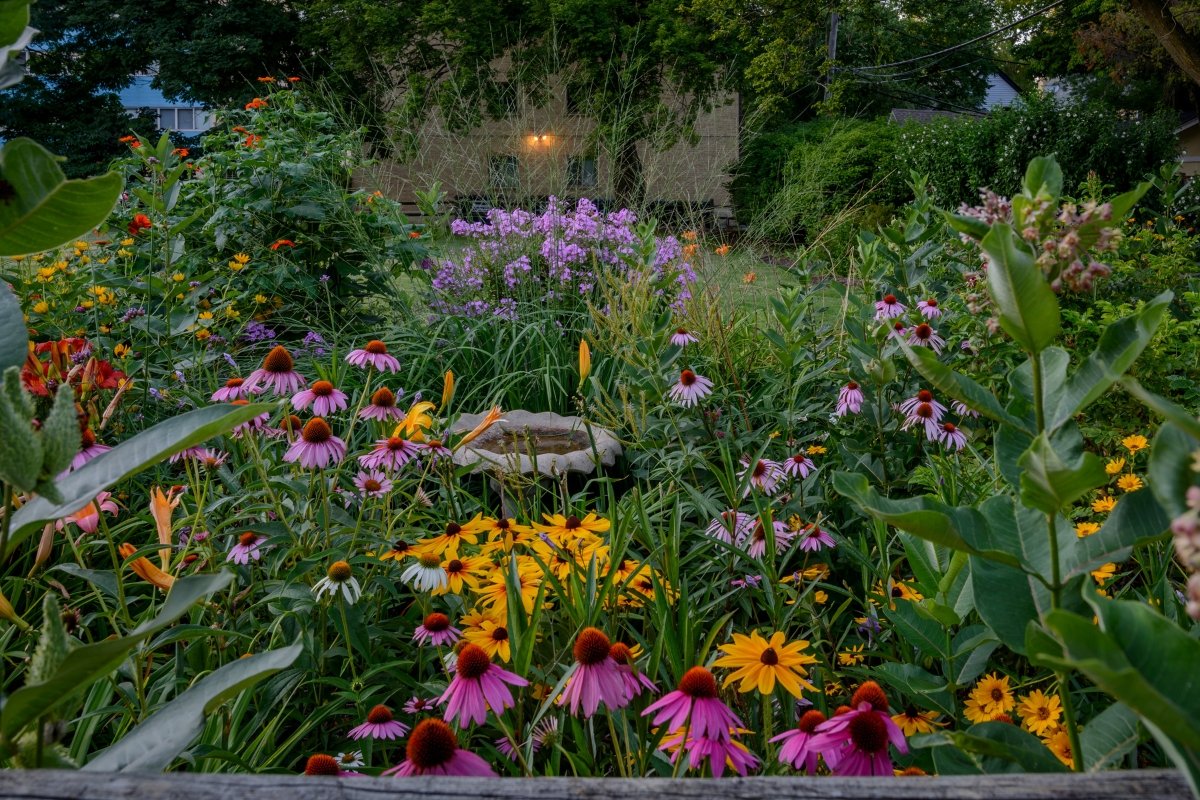As spring draws near, gardeners all around Georgia are studying the best perennials to add to their gardens. Perennials are plants that come back year after year, blooming in different sizes and colors that bring vibrancy and life to any garden. However, with so much variety to choose from, it can be hard to determine which perennials are best for Georgia’s climate and soil.
With temperature ranges and sometimes extreme weather changes, it’s important to choose the right type of plants for Georgia’s gardens. Luckily, with the right knowledge and tips in mind, planting and caring for Georgia’s perennial plants can be a fun and rewarding experience.
In this blog post, we’ll be uncovering the best perennials for Georgia gardens and providing useful tips and tricks to maintain them. From salvias to coneflowers, you’re sure to find perennials that will have your Georgia garden flourishing with color and vitality. So pull out your gardening gloves and let’s get started!
Introduction to Perennials for Georgia Gardens
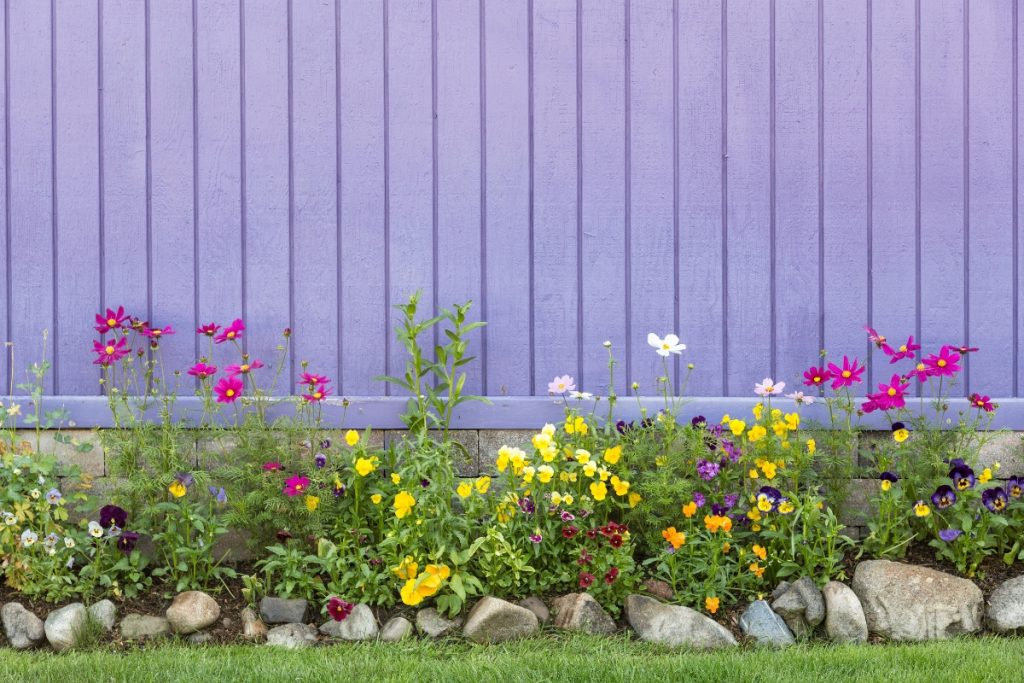
A perennial is a plant that will live for more than two years. Perennials are a great choice for Georgia gardens as they require minimal maintenance, come in a variety of colors, and can often handle the unpredictable weather in the area. With hundreds of perennials to choose from, it can be hard to know which ones are best for Georgia gardens.
Here, we’ll explore the best perennials for Georgia gardens, taking into account the area’s climate, soil quality, and other considerations. In the process, we’ll uncover why certain perennials are better suited for Georgia gardens, allowing gardeners to create beautiful and diverse landscape designs.
Tips for Choosing the Right Perennials for Your Garden
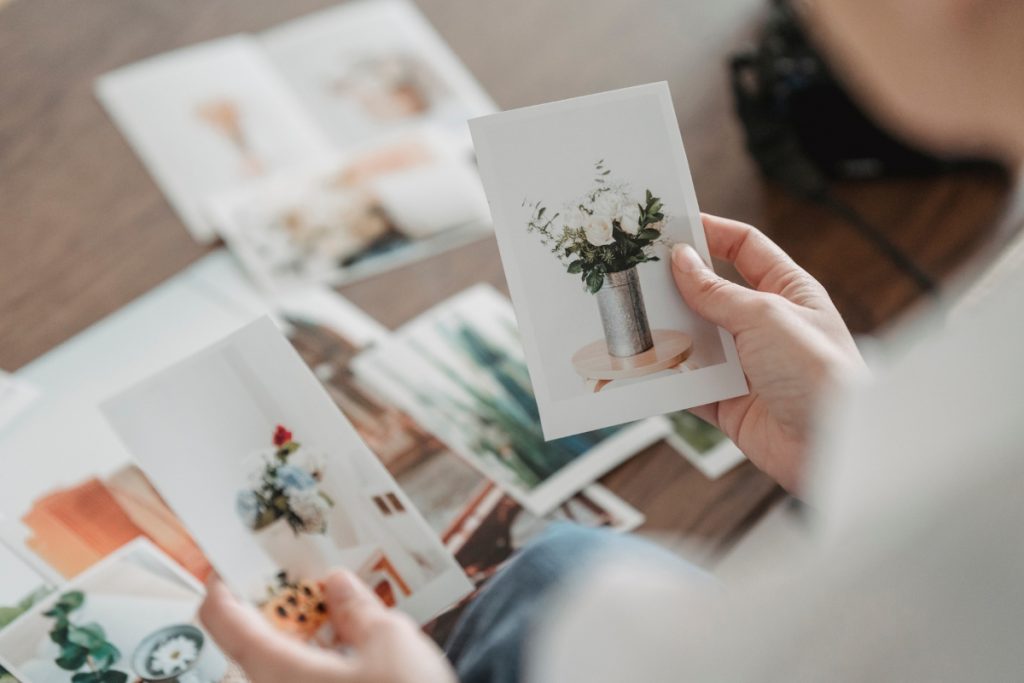
Georgia is filled with beautiful plants and flowers, making it a haven for gardeners looking to add some color to their home. When it comes to perennials, choosing the right varieties is important to ensure your garden thrives and stays healthy. Keep reading for some tips on choosing the best perennials for your Georgia garden.
First, consider the climate and environment in which your garden is located. Georgia’s climate can range from cool and moist to warm and dry. Therefore, it’s important to choose plants that are well-suited to the conditions of your micro-climate, such as those perennials native to Georgia that thrive in the region’s weather.
It’s also important to take into account the soil in your garden. Georgia soils vary from acidic to alkaline, so it’s wise to test your soil before choosing any plants. Once you know the pH level, you can select plants that prefer similar levels.
Another factor to consider when picking the best perennials for your Georgia garden is the sun exposure. Some plants need full sun while others like part shade. Check the label on the plants you’re considering to make sure they will be happy in the amount of sun your garden receives.
Finally, check the plant’s size and growth rate. Some perennials will get quite large, while others are more compact and can fit in smaller spaces. Be sure to choose varieties that will fit comfortably in your space and won’t outgrow their area.
These tips can help you pick the best perennials for your Georgia garden. Keep in mind the climate and soil type, sun exposure, and size and growth rate when selecting plants for your garden. By doing so you can be sure to choose varieties that will thrive and add beauty and color to your outdoor space for years to come.
Salvia: A Must-Have Perennial for Your Georgia Garden
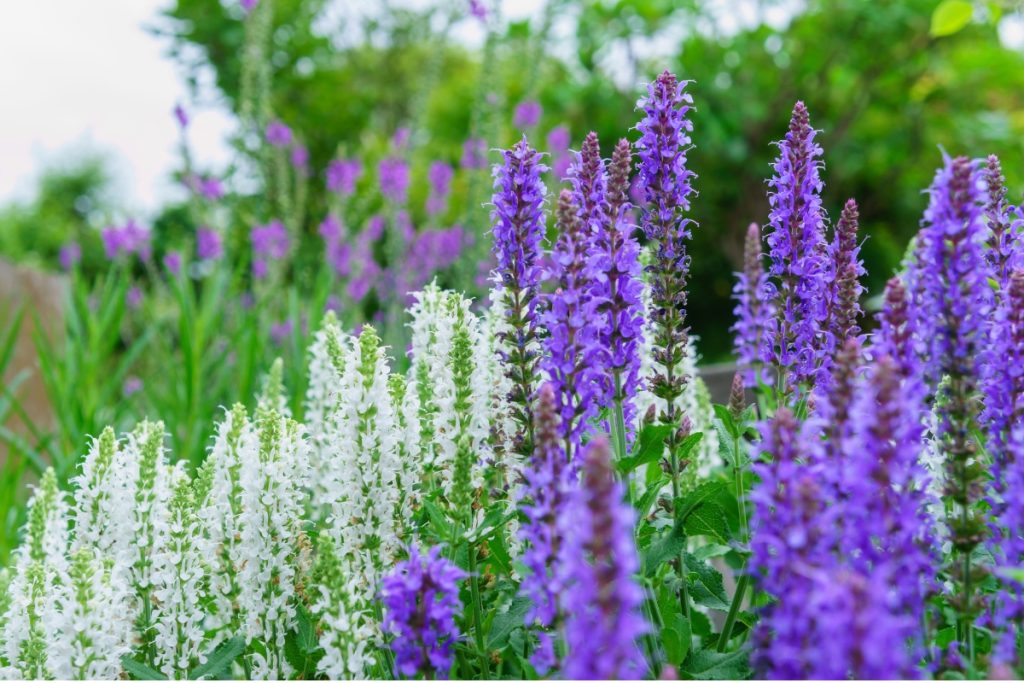
Salvia is a popular and beloved option for Georgia gardens, with its wide range of colorful blooms and long-lasting lifespan. This perennial is perfect for offering texture and interest in the garden over several seasons, providing constant color to any landscape. Salvia is a reliable choice for Georgia gardens, thriving in both wet and dry climates with ease.
This plant is a low-maintenance option for the busy gardener who doesn’t have the time for rigorous tending. Salvia is a drought-tolerant option, retaining its attractive nature even in hot, dry weather with minimal watering. Plus, this perennial is an excellent choice for attracting native pollinators, luring birds and butterflies to your home oasis with ease.
Salvia’s blooms come in shades of purple, pink, white, and red, making it a wonderful choice for filling up larger garden beds. The blooms may last from spring until frost and offer long-lasting color that’s perfect for cutting and filling vases with. Planting in clusters will create the most dramatic effect for your garden, with plants ranging in size from 1 to 3 feet tall.
The best part? Salvia’s roots are mild-tasting and can be cooked in salads and soups for a special treat, making it a must-have perennial for Georgia gardens. Although Salvia can start to look a bit straggly after the blooms fade, they can easily be trimmed back and shaped to encourage new growth.
Coneflowers: Colorful Perennials for Any Georgia Garden
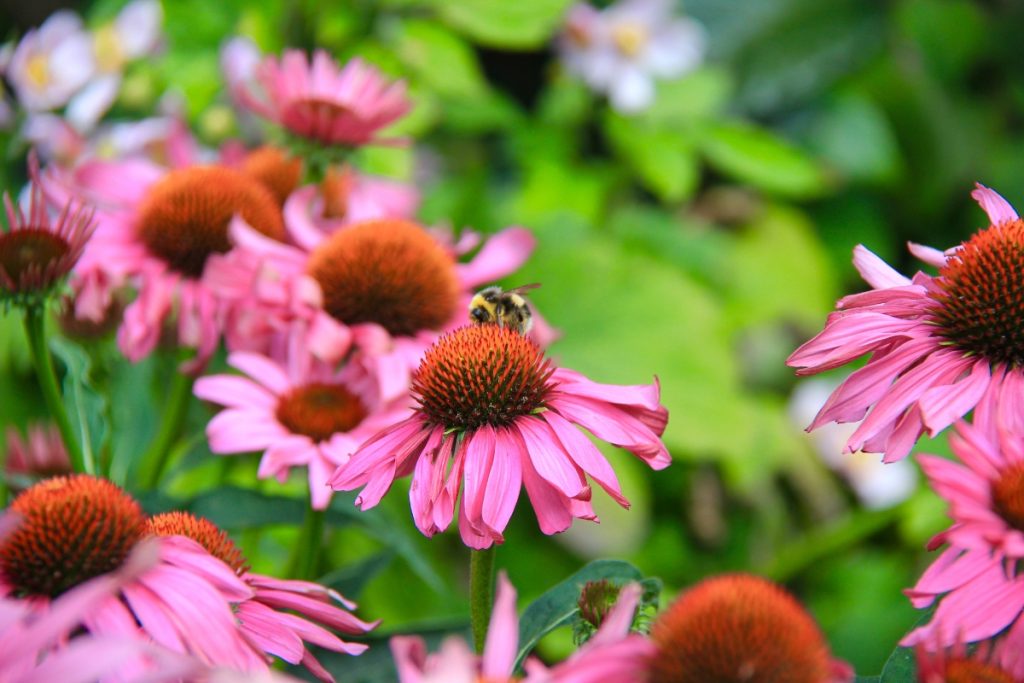
Coneflowers are among the best perennials for Georgia gardens, because their showy blooms, long flowering season, and hardiness go perfectly with the state’s generally sunny, humid climate. Consisting of ray flowers surrounding a domed central disc, coneflowers come in a range of colors. These perennials are native to North America, but are widely cultivated across the US, including in Georgia.
Coneflowers tend to bloom from early to late summer, adding color and texture to any landscape. Many gardeners in Georgia also choose these perennials for their resistance to deer and other pests. If you’re looking for drought-tolerant plants for your garden in Georgia, coneflowers can provide year-round interest in all but the coldest months.
To get the most out of your coneflowers, choose varieties that are suited to your area. The hardiest varieties are native to the southeast US, including purple coneflowers (Echinacea purpurea) and white coneflowers (Echinacea paradoxa). These plants grow best when planted in sunny areas and kept well-watered.
Coneflowers can also be used in combination with other perennials, shrubs, and even trees. For instance, they look great planted with a backdrop of evergreens and spring bulbs or surrounded by a low hedge of shrubs. Some of the best companion plants for coneflowers include catmint, Russian sage, daylilies, goldenrod, and chrysanthemums.
If you’re looking for robust, colorful perennials for your Georgia garden, coneflowers are an excellent choice. These plants are relatively easy to care for, long-lasting, and can take the heat and humidity of the Georgia summers. Consider adding some coneflowers to your garden this year, and you’re sure to be rewarded with a colorful addition that will thrive for years to come.
Delphiniums: Showstoppers for Your Georgia Garden
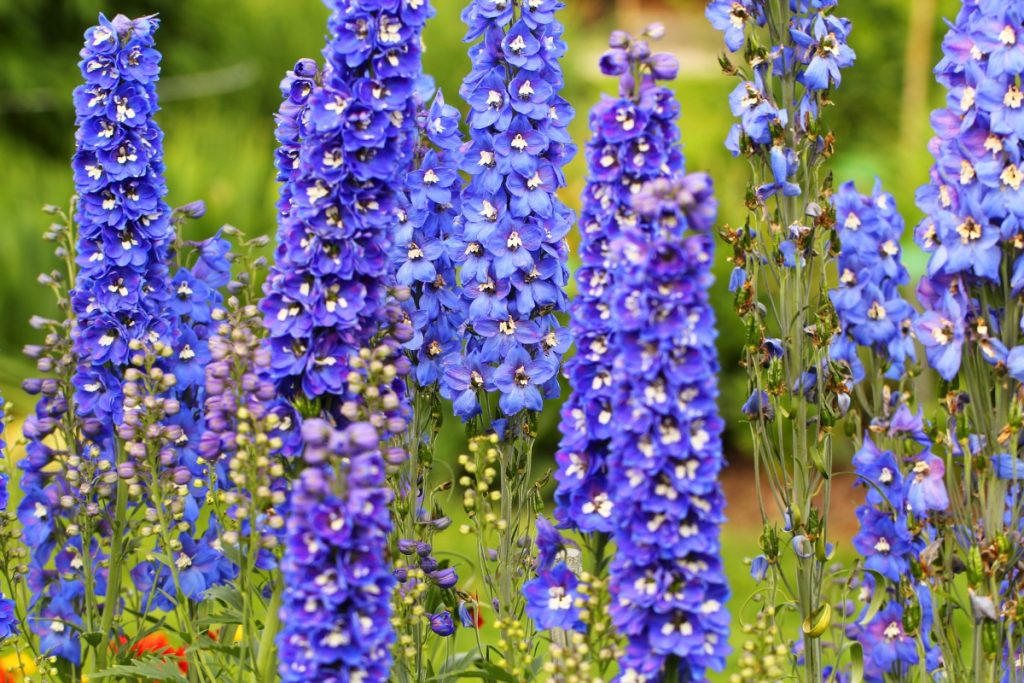
Delphiniums are some of the most beautiful and showstopping plants for your Georgia garden. Grown as perennials, delphiniums will come back in bloom each year with their stunning flowers and tall stature. For those seeking a majestic addition to their garden beds, the best perennials for Georgia gardens offer vivid color, light fragrances and a variety of sizes and color choices. Delphiniums make an excellent choice for those who wish to create a breathtaking display of color in their garden.
Delphiniums are characterized by their tall flower spikes that are painted with a wide range of blues, purples, white and pinks. Most delphinium varieties will reach 3-5 feet in height. When planted in clumps in the garden, they make an eye-catching addition to your space, offering classic beauty and allure. Many of the varieties are quite hardy, withstanding droughts and other difficult weather conditions common to Georgia gardens.
When it comes to planting and caring for delphiniums, there is a range of factors to consider. Planting delphiniums in a sunny spot will ensure the best blooms. You’ll also want to ensure regular watering of the plants, along with full-sun exposure. The best perennials for Georgia gardens will require a nutrient-rich soil with good drainage abilities. Regular fertilizing and pruning of the plants will also help promote better growth and more prolific blooms.
Delphiniums tend to be slow to get started but with proper care and maintenance, they will become one of the most valued additions to your Georgia garden. The best perennials for Georgia gardens are sure to turn heads and add a sense of grandeur to your outdoor spaces. Delphiniums should be planted in spring and with proper maintenance, they are sure to dazzle each season.
Coreopsis: Bright Blooms for Georgia Gardens
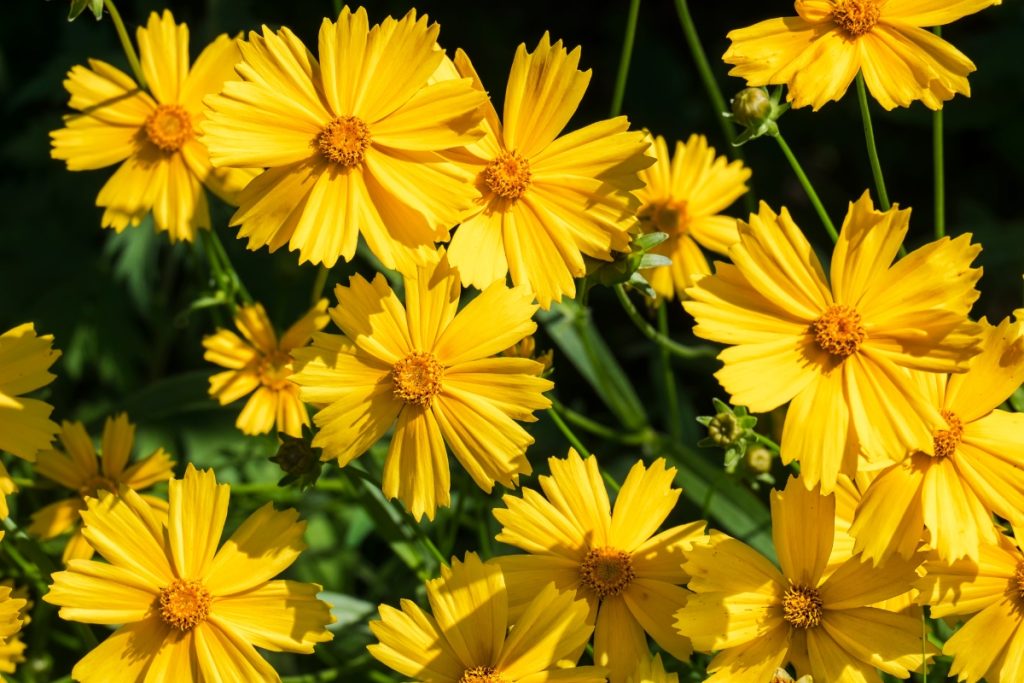
Coreopsis is a stunning flower native to North America that makes an excellent addition to Georgia gardens. Its bright and cheerful yellow-orange petals create a brilliant display of color that can be enjoyed throughout the growing season. Coreopsis is relatively easy to grow, as it’s tolerant of heat, humidity and drought conditions.
This makes it a great choice for those who don’t have time for regular garden maintenance but still want to enjoy their outdoor space. Plus, it’s ideal for attracting beneficial insects such as butterflies and bees to the garden, helping to promote natural biodiversity.
When choosing coreopsis for your Georgia garden, consider the many different varieties available. Tall coreopsis, or “Tickseed,” grows up to three feet in height and features striking daisy-like flowers with two-tone petals. Low-growing species, like the crested coreopsis, are perfect for containers and small-scale garden beds. There are also many hybrids and cultivars that come in an array of colors and sizes to create an even more spectacular display of blooms.
When planting coreopsis, choose a sunny location with well-draining soil. If your soil is heavy, consider amending it with compost or sand prior to planting. While coreopsis is drought-tolerant, it will produce better blooms with regular watering. Deadhead spent flower heads to encourage new growth, and apply a slow-release fertilizer in early spring. To ensure a continuous supply of flowers throughout the growing season, you may need to divide and replant the clusters in spring or fall.
With its bright and cheerful blooms, coreopsis is an excellent choice for Georgia gardens. With the right care and attention, this hardy flower will bring long-lasting color and beauty to your outdoor space.
Tips and Tricks for Planting & Maintaining Perennials in Georgia
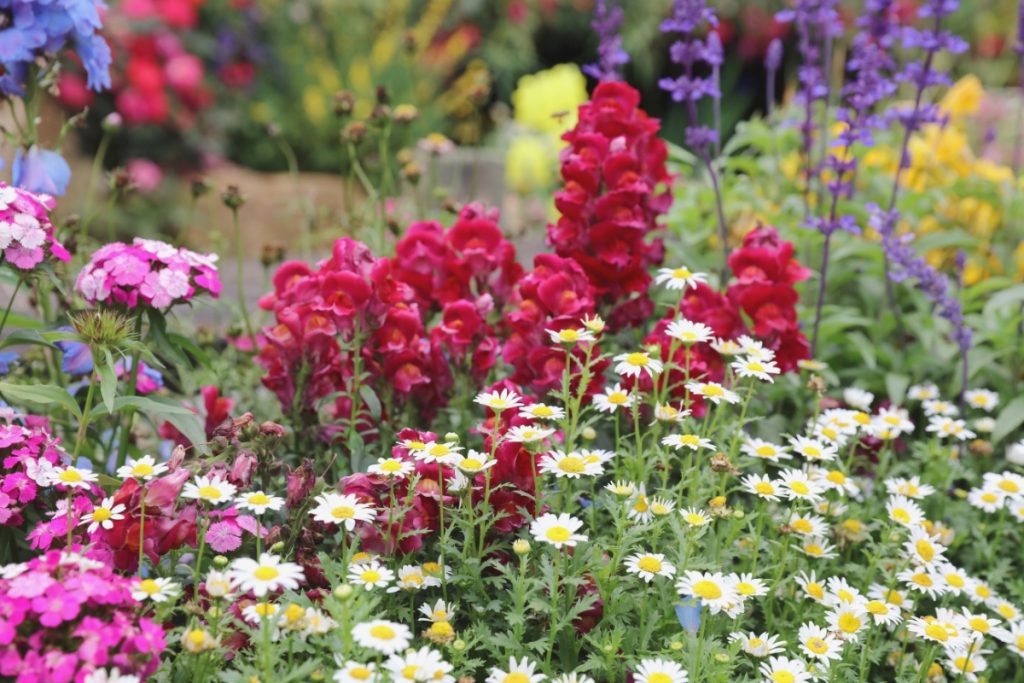
When planting perennials in the state of Georgia, gardeners should plan their gardens to best suit the unique climate and growing conditions. For example, take into account the amount of direct sunlight the plants will get, as well as the soil quality and drainage. Aim to plant in early spring or late fall, when weather is cooler and the risk of plants going dormant during the southern heat is minimized.
When planting, be sure to dig large enough holes for the roots of the plants to expand easily. Mix compost or nutrient-rich soil into the area surrounding the root to provide the plants with added nourishment. Water the newly planted perennials well to help them adjust to their new home and establish their roots.
To ensure perennials in Georgia gardens can thrive, it’s important to offer regular maintenance and care throughout the season. A successful garden in the Georgia climate involves understanding when to water, mulch, and fertilize. Watering schedules should reflect the plants’ needs and the region’s typical weather patterns.
To protect against the sun’s rays during the hot summer months, cover flower beds with mulch for added insulation, moisture retention, and fertility. Finally, fertilize plants approximately once a month, taking into account the type of plants and their nutrient needs.
It is also important to monitor for pests or signs of disease. Unfortunately, many perennial varieties in Georgia can be prone to fungal diseases, such as powdery mildew, as well as an array of insect problems. Regular cleaning of leaves to remove debris and spraying with a garden hose to remove dust and dirt can help prevent the spread of fungus and other diseases. If a pest or disease issue arises, it is best to act quickly to protect your plants and prevent the issue from spreading.
By taking care to understand your local climate and following proper gardening practices, you can enjoy gorgeous perennials in your Georgia garden that will thrive year after year.
Discover the Best Perennials to Thrive in Georgia Gardens
Ultimately, growing perennials in Georgia is easy and rewarding. They make a great addition to any garden, regardless of size. With careful research and consideration of local climates and conditions, finding the best perennials for a Georgia garden can be done in no time. The result will be a garden full of life and beauty that will continue to provide lasting beauty and pleasure for many years to come.
The key to raising a thriving garden in your Georgia garden is by working with the climate and local conditions, not against it. To find the best perennials for your gardens, it’s best to work with a professional like Glover Landscapes to help you.
Our range of landscaping services can help you choose the best type of plants to thrive in your garden’s condition. Give us a call at (404) 510-6437 and let’s talk about bringing your garden to life today!
